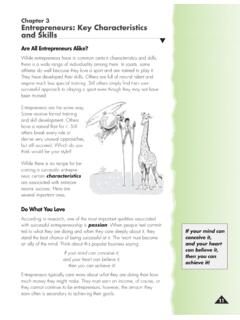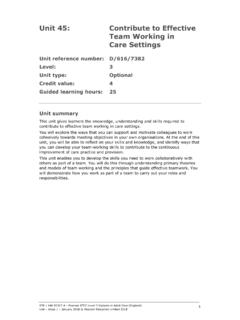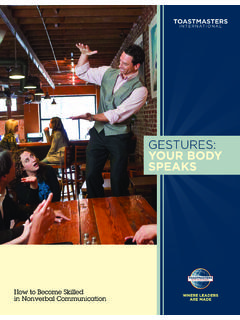Transcription of AMERICA’S ARMY OUR PROFESSION
1 OCTOBER 2018 OUR PROFESSIONAMERICA S any suggestions or questions?(845) 938-0467 19/20 America s Army Our PROFESSION ThemePREVAILING IN LARGE-SCALE COMBAT OPERATIONS: CHARACTER, TRUST, AND MISSION COMMANDThe intent of the America s Army Our PROFESSION theme is to educate the Total Force on The Army s Framework for Character Development and the mutually supporting nature of culture, climate, and identity. In order to prevail in large-scale combat operations, Soldiers and Army Civilians must understand the interdependent relationships between character, trust, and mission leaders strengthen the Army Culture of Trust and set the conditions that support Professional Organizational Climates and living our shared identity.
2 Organizational leaders establish climates that motivate Soldiers and Army Civilians to live by and uphold the Army Ethic in the exercise of mission command. Direct leaders inspire their followers to embrace our shared identity as Trusted Army Professionals. Our leaders, then, are going to have to be self-starters. They re going to have to have maximum amounts of initiative .. critical thinking skills .. [and] character, so they make the right moral and ethical choices in the absence of supervision under intense pressure in combat. General Mark A. Milley39th Chief of Staff, Army(845) 938-0467 ARMY PROFESSIONTRAINING AND EDUCATION RESOURCESAs the Army s proponent for the Army PROFESSION , the Army Ethic, and Character Development, CAPE s goal is to make training and education about the Army PROFESSION straightforward and effective without burdening the organization with more tasks or extensive preparation requirements.
3 The easy-to-use online resources below are designed to support your SimulatorsDoctrineCase StudiesBrochuresTraining Support Packages (TSP)Army PROFESSION and Ethic Faculty Development CourseIdentify Key Concepts of the Army Profession2 THE ARMYPROFESSIONThis pamphlet contains the key concepts and terminology presented in Army Doctrine Reference Publication (ADRP) 1, The Army pamphlet is produced by the Center for the Army PROFESSION and Ethic (CAPE). If you have any suggestions or questions, please contact CAPE at ARMY PROFESSIONTABLE OF CONTENTSOur History ..4 What it Means to be a PROFESSION .
4 7 The Army as a PROFESSION ..8 The Army PROFESSION is a Vocation ..9 Who are Members of the Army PROFESSION ? ..11 The Army Ethic ..13 Professional Certification Process ..14 Preserving the Army PROFESSION ..16 Essential Characteristics of the Army PROFESSION ..17 Trust ..19 Honorable Service ..20 Military Expertise ..23 Stewardship of the Army PROFESSION ..24 Civil-Military Relations ..25 Esprit de Corps ..27 Oaths, Creeds, and Norms of Conduct ..29 Oaths of Office & Enlistment ..30 Soldier s Creed and Warrior Ethos ..32 Noncommissioned Officer Civilian Corps Creed ..34 Title 10 Code Requirement of Exemplary Conduct.
5 36 Code of Conduct for Members of the United States Armed Forces ..37 Army Values ..38 Soldier s Rules ..39 Timeline of the Army ..404 The United States Army is the largest branch of the United States Armed Forces and is responsible for land-based military operations. It is the oldest established branch of the military and is one of seven uniformed services. The modern Army has its roots in the Continental Army, which was formed on June 14, 1775, to meet the demands of the American Revolutionary War before the establishment of the United States. The Congress of the Confederation officially created the United States Army on June 3, 1784, after the end of the Revolutionary War, to replace the disbanded Continental Army Motto, This We ll Defend, was first used by the War Office of the Continental Congress during the American Revolutionary War.
6 This We ll Defend simply states our commitment and oath to defend the Constitution of the United States and its HISTORY5 THE ARMY PROFESSIONARMY NATIONAL GUARDThe National Guard is a unique and essential element of the military. Founded in 1636 as a citizen force organized to protect families and towns from hostile attacks, today s National Guard Soldiers hold civilian jobs or attend college while maintaining their military training part-time, always ready to defend the American way of life in the event of emergencies. The Army National Guard has both a state and national ARMY RESERVEThe history of America s federal citizen Soldier extends back to the early years of the republic.
7 In fact, one of our founding fathers, leader of the Continental Army, and first president, George Washington, presented his concept for a federalized militia in 1783 to a congressional committee created under Alexander Hamilton to investigate and recommend a military CIVILIAN CORPSIn 1776 the Board of War and Ordnance was established with the responsibility of equipping and dispatching troops, maintaining personnel records, and disbursing funds. Five members of the Continental Congress, several clerks, and a paid secretary Richard Peters, the first Army Civilian comprised the board.
8 Subsequently the Continental Army hired Civilians for driving, crafts, carpentry, and laborer jobs. Today Army Civilians have a crucial role in the ethical design, generation, support, and application of The Army is a PROFESSION because of the expert work it produces, because the people in the Army develop themselves to be professionals, and because the Army certifies them as such. They re not just time servers; they re not government bureaucrats. These are people who are motivated intrinsically by a calling far more than a job the desire to serve and defend the Republic. Not just anybody can go out and run a patrol on the streets of Baghdad.
9 So that is what uniquely makes the Army a PROFESSION the effective and ethical application of landpower that the American people trust to defend their security interests. Don M. Snider, CAPE Senior Fellow Emeritus7 THE ARMY PROFESSIONWHAT IT MEANS TO BE A PROFESSIONA PROFESSION is a trusted, disciplined, and relatively autonomous vocation whose members: iProvide a unique and vital service to society, without which it could not flourish. iProvide this service by developing and applying expert knowledge. iEarn the trust of society through ethical, effective, and efficient practice.
10 IEstablish and uphold the discipline and standards of their art and science, including the responsibility for professional development and certification. iAre granted significant autonomy and discretion in the practice of their PROFESSION on behalf of society. 8 THE ARMY AS A PROFESSIONArmy PROFESSION : A unique vocation of experts certified in the ethical design, generation, support, and application of landpower, serving under civilian authority and entrusted to defend the Constitution and the rights and interests of the American Professional: A Soldier or Army Civilian who meets the Army PROFESSION s certification criteria in character, competence, and professional responsibilities of a Soldier or Army Civilian include.




